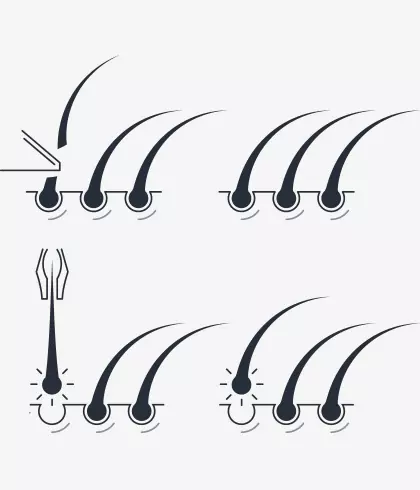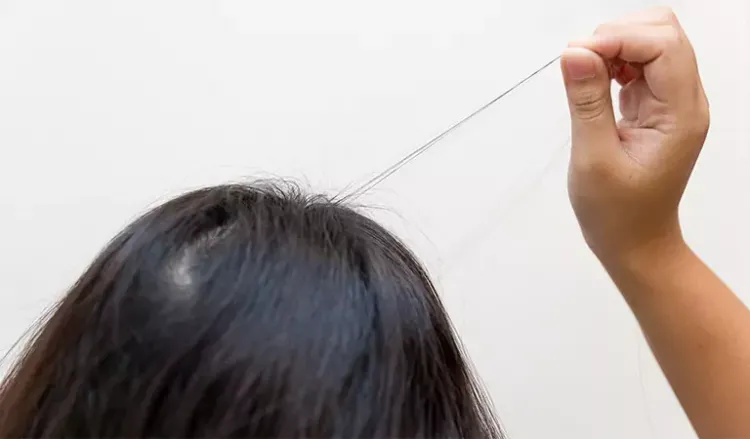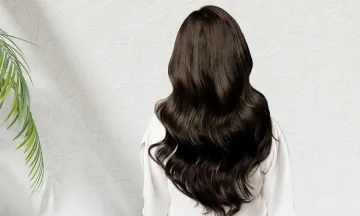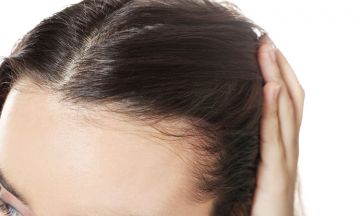Is hair pulling hereditary?
Many of us have felt overwhelming anxiety or worry that has made us want to “pull our hair out.” Well, pulling out hair can be an everyday reality for someone with trichotillomania. This condition can develop due to inheritance, but other factors also contribute to the condition.According to research by the Genetic and Rare Diseases (GARD) Information Center, mutations in a gene called SLITKR1 may play a role in the development of trichotillomania in families.
What is trichotillomania?
Trichotillomania, also known as a hair-pulling disorder, is a mental disorder that involves repetitive, overwhelming urges to pull out hair from the scalp, eyebrows, or other areas of the body.
Hair pulling from the scalp often leaves bald patches; these patches can cause distress and interfere with social or work functioning.
It is important to understand first the trichotillomania causes, knowing the root cause can help you to control the condition and open ways for treatment options.
What causes trichotillomania?
The cause of trichotillomania is unclear. But similar to various complex disorders, trichotillomania can result from a combination of environmental and genetic factors.
The following factors tend to increase the risk of trichotillomania:
-
Family history:
Genetics can play a role in trichotillomania development, and the disorder may occur in those who have a close relative with this disorder.
-
Medical condition:
It can be caused due to a chemical imbalance in the brain, similar to obsessive-compulsive disorder (OCD)
-
Childhood trauma:
According to the National Organization for Rare Disorders, a person who has experienced childhood trauma (e.g., physical, sexual, and/or emotional abuse) may be more likely to develop trichotillomania.
-
Stress:
Severely stressful events or situations may trigger trichotillomania in some people.

The emotional aspect of trichotillomania
There is a huge emotional factor to this condition. People with trichotillomania often experience a rush of conflicting emotions. This can contribute to increased levels of anxiety, stress, and depression.
-
Positive emotions:
While pulling hair deliberately, the relief of pulling out the ‘right’ hair results in a rush of endorphins; this leads to positive feelings. People may feel accomplished, relieved, happy and calm immediately upon pulling out their hair.
-
Negative emotions:
Once the positive emotions fade away or after an occurrence of deliberate hair pulling, some people may experience the feeling of guilt, panic, shame, disgust and sadness.
Things you can try yourself
Here are some tips that may benefit you when you feel the urge to pull your hair:
- Squeeze a stress ball or something similar
- Use a fidget toy
- Wear a tight-fitting hat or a bandana, such as a beanie
- Repeat out loud, a positive saying until the urge to pull passes
- Practice deep breathing till the urge to pull hair goes away
Trichotillomania is seen to have a neurobiological basis which can have several causative factors. Hence, there is no quick fix for trichotillomania management. It is a complex disorder that requires personalized trichotillomania treatment.
Also read: https://www.drbatras.com/can-trichotillomania-cause-permanent-hair-loss
Homeopathy treatment for trichotillomania
Homeopathy stimulates the body's ability to heal itself from stubborn health conditions. Homeopathic trichotillomania treatments are based on detailed case studies, which also include the mental and emotional aspects of the patient along with the physical symptoms of trichotillomania. Homeopaths look at the whole person on a physical, mental and emotional level rather than just the affected scalp or other areas of the body. The medicines thus selected helps in improving the body’s response to stress; this helps in controlling the urge to pull out hair.
Homeopathy takes a holistic approach by addressing physical, mental, and emotional factors to ensure overall wellbeing. Homeopathic medicines are non-habitual, side-effect-free, and provide long-lasting relief. Since it addresses the root cause of a problem, the homeopathic treatment for trichotillomania also lowers the chances of reoccurrences.
According to a study published in the Indian Journal of Dermatology, homeopathy is a safe and clinically effective line of treatment for trichotillomania with up to 90% patient recovery.
At Dr Batra’s®, we have successfully treated more than 10 lakh cases with a positive treatment outcome rate of 91% (authenticated by American Quality Assessors) over the past 35 years. Our doctors address the trichotillomania causes through suitable homeopathic medicines and reduce the chances of recurrence of the condition. These homeopathic medicines are side-effect-free, non-habit forming and provide long-lasting relief.Book an appointment with us and get rid of hair-pulling disorder effectively.




